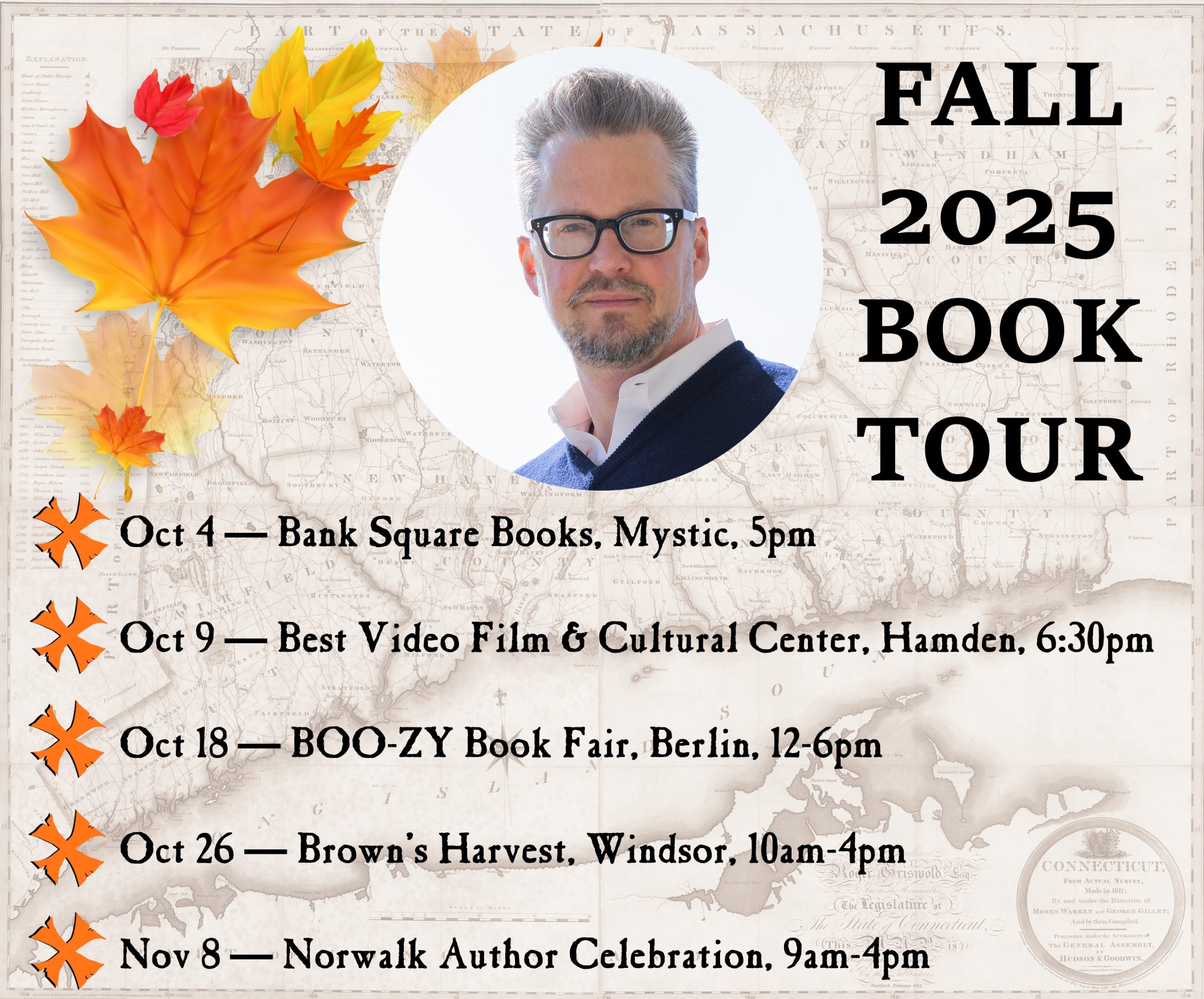
Historical Fiction Authors Event
• Wednesday, September 3, 5–6pm
• I will be speaking at the Wesleyan RJ Julia Bookstore, 413 Main Street in Middletown, along with two other authors of historical fiction. Bring your questions about research and the processes we use to turn facts into narratives.
Bank Square Books
• Saturday, October 4, 5–6pm
• I will be giving a short talk and signing copies of The Island of Small Misfortunes at their new location, 80 Stonington Road in Mystic.
Best Video Film & Cultural Center
• Thursday, October 9, 6:30–8pm
• This is going to be a super fun event with the HWA New England chapter. We’ll be talking about our favorite horror films as well as our most favorite obscure films (Icelandic horror and noir will definitely come up!). The event will take place at 1842 Whitney Avenue in Hamden.
BOO-ZY Book Fair
• Saturday, October 18, 12–6pm
• Hosted by Coles Road Brewing, Oh My Ganache Bakery, and others, there will be food and vendors. The event is located at 817 Farmington Ave in Berlin. Costumes encouraged.
Brown’s Harvest
• Sunday, October 26, 10am–4pm
• Join me and other authors at Brown’s Harvest Family Farm, 1911 Poquonock Avenue in Windsor, where you can pick pumpkins, take a hayride, grab a cup of fresh cider, and buy a spooky book or two.
Norwalk Author Celebration
• Saturday, November 8, 9am–4pm
• The Norwalk Library’s ninth annual book sale! Seventy authors will be selling their books at the main branch, 1 Belden Avenue in downtown Norwalk.



